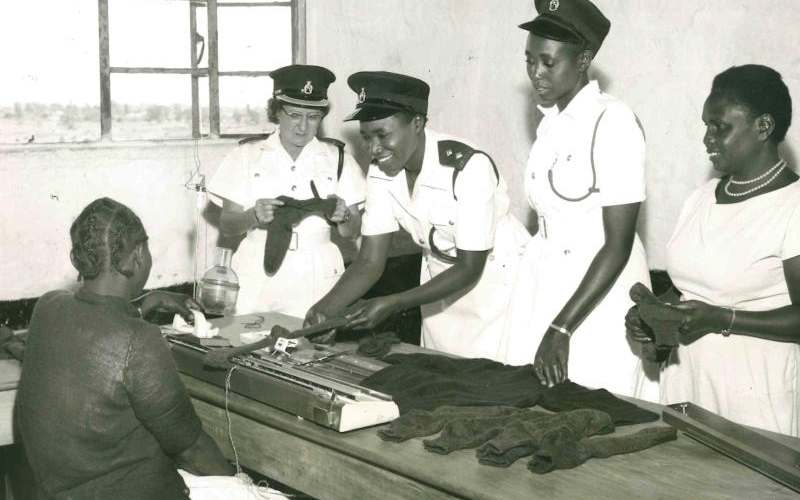×
The Standard e-Paper
Join Thousands Daily

Senior prison officer Phoebe Asiyo [second left] inspecting knitting machines at Langata women's prison 1962.[Arhives]
Long before the import of the adage “spare the rod and spoil the child” was abandoned by schools, Kenya’s justice system was such that convicts could be hanged, caned or subjected to hard labour during their prison terms.